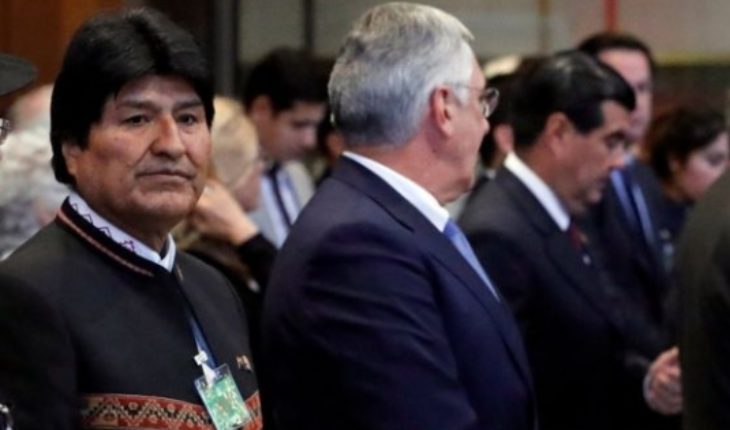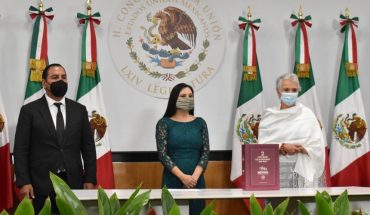decision is unappealable. “However, despite this ruling, the ICJ invites both Governments to find a way to engage in a dialogue on this issue”, said judge Abdulqawi Ahmed Yusuf.El failure puts an end to a lawsuit filed by Bolivia in 2013 before the ICJ against Chile which sought to force this country to negotiate “in good faith” Bolivia “sovereign” output to the sea.
That, according to the expert in international relations and Bolivian University Professor Daniel Agramont, leaves Bolivia in uncertainty and, once again, at the mercy of the Chilean will.
“It is very complicated and a blow very hard for Bolivia”, you said to the BBC.
The ICJ determined that Chile has no obligation to negotiate with Bolivia that this country has a sovereign exit to the sea.
Agramont said that the Bolivian argument that Chile is obliged to negotiate a solution is no longer held from this bug.
The analyst notes that as there is no legal obligation, in Santiago they may decide to close this topic, arguing that everything already agreed with the treaties signed after the war of the Pacific (1879-1883).
“To Bolivia you will have to look at other options to have an outlet to the sea”, indicates.
He adds that La Paz must try to deal with Santiago and get the most out of existing agreements which allow you to use the Northern seaport of Arica with some facilities.
The worst possible scenario, Rafael Rosell, Dean of the Faculty of law of the University of San Sebastian, in Santiago, agreed that the verdict is the worst possible scenario for Bolivia and has legal and political connotations.
The expert adds to the peace he has take advantage of preferences in the port of Arica.
“It is not that Bolivia does not have sea, but their quest for a sovereign sea access is very difficult.”
Rossell said that Bolivian President Evo Morales created too many expectations in its population. Morales was present on the floor of the headquarters of the Court when the ruling was issued.
“I don’t know how it will go to handle this now from the communicational point of view,” he concludes.
The analyst indicates that the process in the Hague never discussed the transfer of territory, but simply the obligation to establish a dialogue.
Points out, moreover, that the Bolivian demand had defects such as not to include Peru, is a country directly involved in the maritime dispute.
Other options that have nothing to do with Chile more than the dispute with Chile, other options that arise to make Bolivia access to the sea through treaties signed with Peru, Brazil, Argentina, Paraguay and Uruguay.
In 1992, the Governments of Bolivia and Peru signed a treaty whereby the port of Ilo, a coastal strip of five kilometers south of the Peruvian territory, was ceded to its neighbouring country for 99 years.
Bolivia lost its access to the sea after the call “The Pacific war” (1879-1884) against Chile.
A still more ancient alternative to Bolivia is an outlet to the Atlantic thanks to a treaty signed with Paraguay in 1937.
Bolivian boat can reach sea water from its own docks and, after crossing a Paraguayan River, flowing into the ocean. For this purpose, Bolivians built Puerto Busch, although its implementation has been very slow.
In addition, through various treaties, Argentina, Brazil and Uruguay, awarded facilities to Bolivia for its products by its shores.
It is installation options for that country products tax-free zones and even facilities in different ports.
Bolivia lost its access to the sea after the call “The Pacific war” (1879-1884) against Chile.
In its application, based on several documents signed by representatives of both Governments since the end of the conflict also involving Peru.
The most important were the peace agreement signed between the two countries in 1904, an exchange of documents that took place in 1951, 1975 called “Charaña agreement”, a memorandum of the Chilean Ambassador in la Paz, Manuel Trucco, 1961 and the Algarve “Declaration” of the year 2000.
According to Bolivia, in the language expressed in the documents mentioned, established the legal obligation that Chile had to negotiate an exit to the sea.
Each of these documents were rejected by the Court.
translated from Spanish: Options remaining to Bolivia in its attempt to regain its outlet to the sea after the ruling favorable to Chile
October 1, 2018 |





